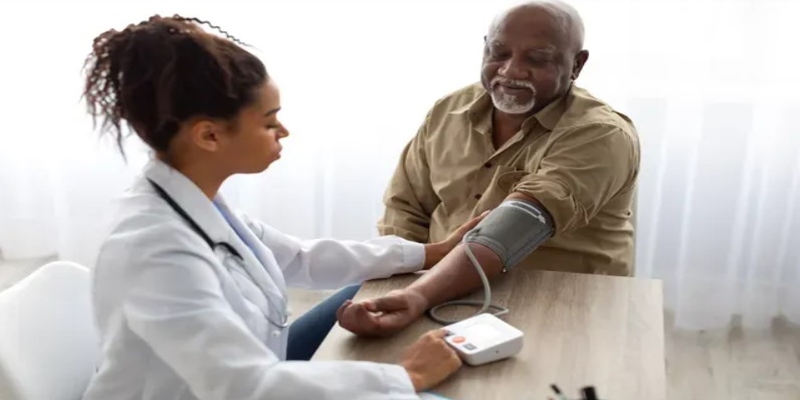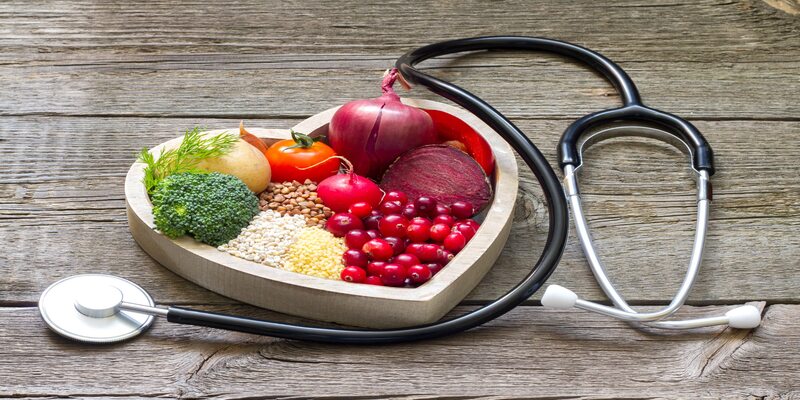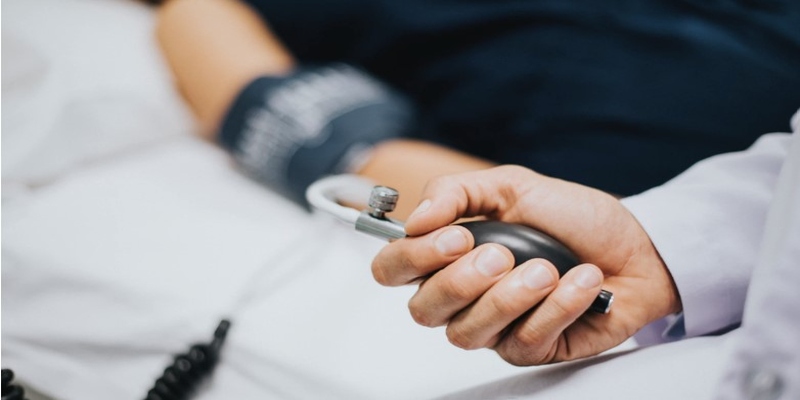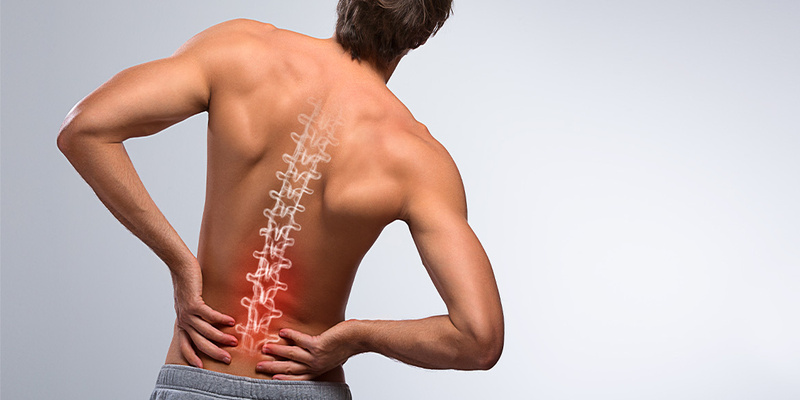Health is Wealth, you must have heard of this proverb. It means health is the greatest asset of a human being. But we do not pay much attention to it. Our lifestyle strongly influences our health, and an unhealthy lifestyle can lead to many diseases.
High blood pressure (hypertension) tops the list. Not only this disease itself is very dangerous, but it can also lead to many other diseases. Therefore, it is crucial to diagnose it on time and start the right treatment.
In this article, we will discuss how to treat hypertension. You do not necessarily need to opt for medication as there are other ways to control high blood pressure, e.g. through diet and exercise.
Lets delve into the details!
Understanding Hypertension What Is It?

Hypertension is a condition in which the pressure of blood against the walls of arteries is very high. It is characterized by an increase in the normal value of 120/80 mm Hg.
if your blood pressure is consistently above or equal to 130/80, you are suffering from hypertension. It is an alarming condition.
Causes and Risk Factors of Hypertension
Major causes of hypertension can be characterized as primary and secondary causes.
Primary Causes
- Unhealthy eating habits (processed foods)
- Lack of physical activity
- Obesity
- Increased salt intake
- Type 2 diabetes
- High cholesterol level
- Genetic factors
Secondary Causes
- Chronic kidney diseases
- Hormonal problems
- Sleep apnea
- Diabetic nephropathy
- Heart diseases
- Hyperthyroidism
Main Symptoms of Hypertension You Must Know
High blood pressure often has no definite symptoms and is regarded as a silent killer. Some of the common symptoms of hypertension include the following:
- Headaches
- Chest pain
- Dizziness
- Trouble breathing
- Nausea
- Anxiety and confusion
- Irregular heartbeat
- Vomiting
- Blurry vision
- Nosebleeds
Lifestyle Changes to Manage And Treat Hypertension

Watch Your Weight
Controlling your weight and maintaining it within the healthy limit is the biggest favour you can give to your body. Obesity is the mother of illnesses, including high blood pressure. So if you are suffering from it, you must try to lose weight.
Dietary Modifications
Another big factor that contributes to hypertension is an unhealthy diet. Avoid eating processed foods such as carbonated drinks and foods rich in salt and sodium. Try to incorporate healthy food choices such as fresh fruits, vegetables and low-fat dairy products. These healthy eating habits will lead to lower blood pressure.
Exercise Regularly
Any form of physical activity like jogging, running, cycling, or swimming is considered exercise and can cause blood pressure to be lowered. If you are suffering from hypertension or at risk of it, you must try any form of regular exercise. It will definitely show a positive result.
Dont Take Stress
Stress and anxiety play a large role in increasing your blood pressure. It causes higher blood pressure in the arteries and increased heartbeat. Patients should try to avoid stress and tension as much as possible.
Control your Cholesterol
Elevated amounts of "unhealthy" LDL cholesterol increase the likelihood of developing hypertension and heart diseases. To control it, try nutritious foods, engage in physical activity and shed extra weight.
Medical Treatments for Hypertension

Diuretics
These are also known to help remove excess water and sodium. They are mostly regarded as the first choice for treating hypertension. Thiazide and potassium-sparing are the most common types of diuretics. The recommended type depends on factors like blood pressure readings and other health conditions like heart failure.
One complicacy of diuretics is frequent urination, which can lead to low potassium levels. Maintaining proper potassium balance is important for heart function. If potassium levels are low, a potassium diuretic like triamterene may be prescribed.
Calcium Channel Blockers
This medication also helps relax blood vessel muscles and can slow the heart rate. Norvasc and diltiazem are mostly used as calcium channel blockers and might be more effective for older individuals.
ACE Inhibitors
Angiotensin-converting enzymes relax blood vessels by blocking a natural chemical that narrows them. Examples include lisinopril and benazepril.
Alpha Blockers
Alpha-blockers lower neural signals to blood arteries, helping to lower blood pressure by decreasing the reaction of natural chemicals that cause blood vessels to be narrow.
Beta Blockers
Beta-blockers lower the heart's workload and widen blood vessels. This results in a lower heartbeat. Beta-blockers are often used with other blood pressure medications for better results.
Alpha Beta Blockers
Alpha-beta blockers do the same as alpha-blockers but also slow the heart rate and lower the amount of blood the heart needs to pump. Carvedilol and labetalol are examples.
Vasodilators
Vasodilators relax the muscles in artery walls, thus preventing them from narrowing. Examples include minoxidil and hydralazine.
Aldosterone Antagonists
Aldosterone antagonists are used for managing high blood pressure, which is not controlled by any other medication. They do so by blocking a chemical that can cause an accumulation of fluid and salts in the body. Examples include spironolactone and eplerenone.
Renin Inhibitors
Renin-inhibitors slow down the production of renin. These enzymes cause hypertension. Aliskiren (Tekturna) is an example.
Some Tips to Follow!
- If you are suffering from hypertension, make sure to check your blood pressure regularly.
- Never start any medication on your own nor skip any prescribed medication
- Try to keep a health journal
- Try exercise and stress reduction techniques
Conclusion
The article discusses how to treat hypertension and highlights the positive impact of lifestyle changes and medications on hypertension. Hypertension is characterized by an increase in the normal value of 120/80 mm Hg.
We must be aware of its causes and symptoms for an early diagnosis and treatment.
Although, it can be considerably controlled by lifestyle modifications such as a controlled diet and exercise. But if the condition worsens, you can opt for certain medications with your doctor's advice.






